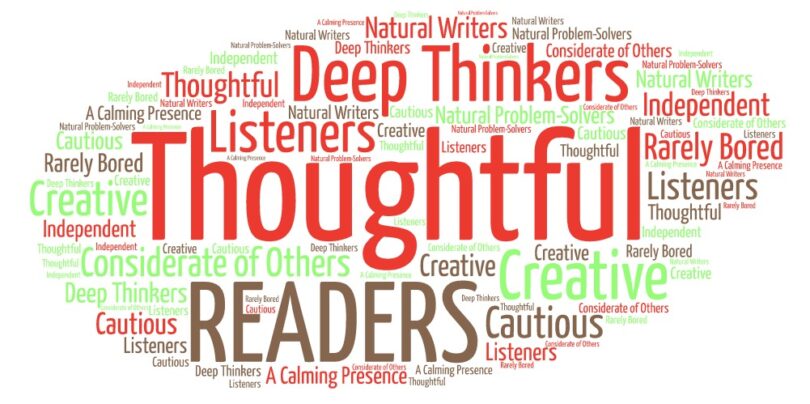Introvert Meaning
An introvert is a person with qualities of a personality type known as introversion, which means that they feel more comfortable focusing on their inner thoughts and ideas, rather than what’s happening externally. They enjoy spending time with just one or two people, rather than in large groups or crowds.
Table of Contents
When you hear the word introvert, you might think of someone who’s shy or quiet and prefers to be alone. While that may be true for some introverts, there’s much more to this personality type. Whether you’re an introvert or an extrovert all depends on how you process the world around you.
RELATED: Burna Boy Adds Lamborghini And Maybach To His Fleet
A psychologist named Carl Jung began using the terms introvert and extrovert (sometimes spelled extravert) in the 1920s. These two personality types sort people into how they get or spend their energy. Introverts, Jung said, turn to their own minds to recharge, while extroverts seek out other people for their energy needs.
Signs
Signs You Might Be an Introvert
Around one-third to one-half of all people in the U.S. are introverts. Though it looks different to everyone, introverts have many of the same patterns of behavior. In general, introverts:
- Need quiet to concentrate
- Are reflective
- Are self-aware
- Take time making decisions
- Feel comfortable being alone
- Don’t like group work
- Prefer to write rather than talk
- Feel tired after being in a crowd
- Have few friendships, but are very close with these friends
- Daydream or use their imaginations to work out a problem
- Retreat into their own mind to rest
Causes of Introversion
Scientists don’t know for sure if there’s a cause for introversion or extroversion. What they do know is the brains of the two personality types work a little differently from each other. Researchers have found that introverts have a higher blood flow to their frontal lobes than extroverts do. This part of the brain helps you remember things, solve problems, and plan ahead.
Introvert brains also react differently to dopamine than extrovert brains do. That’s a chemical that turns on the reward- and pleasure-seeking part of your brain. Introverts and extroverts have the same amount of chemicals, but extrovert brains get an excited buzz from their reward center. Introverts, on the other hand, tend to just feel run down by it.
Types
Being an introvert isn’t an all-or-nothing stamp on your personality. Psychologists think of introverts as falling somewhere on a scale. Some people are more introverted than others. Other people fall right in the middle of the scale. They’re called ambiverts.
Introverts usually have a few extroverted traits mixed in with their introverted ones, and vice versa. There are a wide range of ways to be an introvert.
One study shows that introverts tend to fall into one of four subtypes:
Social introverts. This is the “classic” type of introvert. Social introverts like small groups and quiet settings over crowds.
Thinking introverts. People in this group are daydreamers. They spend a lot of time in their thoughts and tend to have creative imaginations.
Anxious introverts. They seek out alone time not just because they like it, but also because they often feel awkward or shy around people.
Restrained/inhibited introverts. These introverts think before they act. They aren’t likely to make a decision on a whim. Typically they take longer to take action.
Your introverted ways may change over time, and in different settings, too. You’re not likely to swing from introvert to extrovert. But it’s possible you could become more or less introverted, depending on what’s going on in your life.
Introversion Versus Shyness
Many people think of introverts as shy, but the two aren’t linked. Introversion is a personality type, while shyness is an emotion.
People who are shy tend to feel awkward or uncomfortable when they’re in social situations, especially when they’re around strangers. They may feel so nervous, they become sweaty. Their heart may beat quicker, and they may get a stomachache. They may be inclined to skip social events because they don’t like the negative feelings that take over their thoughts and bodies when they have to go to parties or other activities.
People who are introverted also prefer to skip social events, but it’s because they feel more energized or comfortable doing things on their own or with one or two other people. Introverts don’t choose to skip social events because they have strong negative reactions to larger gatherings the way that shy people do; they just prefer being alone or in very small groups.
Myths About Introverts
One common myth about introverts is that they’re shy. Some introverts may be shy, but this is not the case for all introverts. Other myths include:
- Introverts are unfriendly. Being an introvert doesn’t affect how friendly you may be. Some people may think that introverts are unfriendly because they don’t tend to have large groups of friends, and they may reflect on situations quietly rather than join in on conversations at gatherings.
- Introverts can’t be leaders. Although people may think of an extroverted personality when they imagine a leader, introverts have the skills to be bosses and leaders, too. Some of their qualities make them effective leaders: They listen to their employees’ ideas, they can stay focused on long-term goals, and they may seem less threatening, so people may accept them in their roles.
- It’s hard to get to know introverts. Introverts prefer to have deep friendships with only a handful of people. They may not open up to everyone who wants to small-talk, but the people they’re close with know them very well and develop real friendships with them.
Characteristics
In addition to these signs and types, there are a number of other characteristics that are common among introverts. These include:
- Reflective: Introverts tend to be more introspective and reflective than extroverts, and may spend a lot of time thinking deeply about things.
- Thoughtful: Introverts are often more thoughtful and intentional in their actions and decisions than extroverts.
- Observant: Introverts tend to be good observers, taking in their surroundings and paying attention to details that others may miss.
- Empathetic: Introverts may be particularly attuned to the emotions and feelings of others, and may be skilled at understanding and relating to others on a deeper level.
- Creative: Introverts often have rich inner worlds and may be more likely to express themselves creatively, through writing, art, or music.






